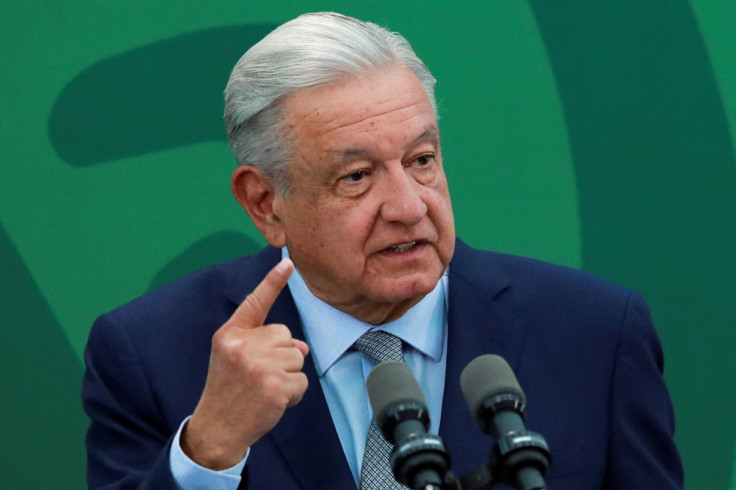
Mexico's President Andres Lopez Obrador announced Thursday that Lenia Batres was appointed the Supreme Court judge, following the lawmakers' rejection of candidates he recommended last month.
Batres, a former federal deputy and legal adviser, took over the office right after the announcement Thursday afternoon, replacing Justice Arturo Zaldívar, Reuters reported. Batres will be serving 15 years of term.
The judge is Mexico City's mayor, Martí Batres' sister, who is a member of the president's ruling party, Morena.
Obrador, who is currently in his final term as president, has repeatedly slammed the court for being corrupt and against his administration's objectives.
Besides last month's nominees, Obrador had also proposed names Thursday morning, which were rejected by the Senate. This action authorized the president to select a judge on his own.
Morena Senator Ricardo Monreal said Wednesday afternoon that a deal between his and the Citizens' Movement party didn't go as per the plan, which started speculations of reduced chances of all three candidates to get enough votes for being appointed as the judge.
"We were building a broad agreement since yesterday, but in the end, it didn't materialize," he said, Court House News reported.
Luis Eliud Tapia, a legal consultant at the Washington D.C.-based global criminal justice watchdog Fair Trials, took to X (formerly known as Twitter) and wrote, "It's a good idea for people without a judicial career to be on the Supreme Court, as long as they're independent and impartial."
Rodrigo Brito Melgarejo, a law professor at Mexico's National Autonomous University, said choosing a candidate who shared close ties with the ruling party doesn't look good for Mexico's legal community.
"It reveals that the nomination has been politicized," Melgarejo said. "Rather than looking for a person with an adequate profile, one that is the best for the makeup of the maximum tribunal of the country, they made decisions based on a diagnosis of a political character, not one that would be ideal for a Supreme Court justice."
José Antonio Crespo, a research professor at the Mexico City government think tank CIDE, claimed that Obrador intended to bring those people into power who will stay loyal to him, even after he leaves office.
Earlier this week, the president took a pledge to get rid of all regulatory agencies that oversee the government before he stepped down from his position on Sept. 30.
© 2023 Latin Times. All rights reserved. Do not reproduce without permission.







